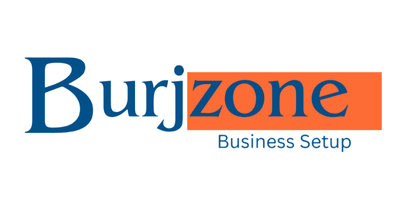Our Blog
Home / Blog
Top Questions Foreign Investors Ask When Starting a Business in Dubai
Dubai continues to attract thousands of foreign investors with its strategic location, zero income tax, and a pro-business regulatory framework. But for those entering the market for the first time, the process can feel complex. Before setting up operations in Dubai Mainland, Free Zones, or elsewhere in the UAE, investors naturally have questions.
This article answers the most frequently asked questions foreign investors have when starting a business in Dubai, helping you make informed decisions and avoid costly missteps.
1. Can I Own 100% of My Business in Dubai?
Yes—in most sectors, 100% foreign ownership is now allowed in Dubai Mainland as per UAE Commercial Companies Law amendments. However, some strategic sectors may still require a UAE national partner.
In Free Zones, foreign investors have always been allowed full ownership.
Tip: Always check ownership eligibility based on your specific business activity.
2. What’s the Difference Between Mainland and Free Zone Setup?
-
Mainland companies can trade anywhere in the UAE and abroad, but may need approvals from multiple authorities.
-
Free Zone companies are typically limited to operating within the zone or exporting internationally unless they appoint a local distributor.
Your choice impacts your market access, office location, and licensing requirements.
3. Which Business Activities Require Special Approvals?
Activities in sectors like:
-
Finance
-
Healthcare
-
Education
-
Food and Beverage
-
Import/Export of regulated goods
…require external approvals from relevant ministries or regulatory bodies.
Always consult with a licensed business setup advisor before applying for a license to avoid delays.
4. How Long Does It Take to Set Up a Company in Dubai?
In general:
-
Free Zone company setup: 5–10 working days
-
Mainland company setup: 7–14 working days
-
Bank account opening: 1–3 weeks depending on the bank and nationality of the shareholders
Timelines may vary based on business activity, required documentation, and whether external approvals are needed.
5. What Are the Minimum Capital Requirements?
-
Dubai Mainland: No official minimum capital for most activities, but it should be defined in the MOA.
-
Free Zones: May require specific minimum capital, e.g., AED 50,000 or AED 150,000 depending on the zone and activity.
However, most Free Zones do not require actual capital deposit unless explicitly stated.
6. What Documents Do I Need as a Foreign Investor?
For individual shareholders:
-
Passport copy
-
Visa copy (if applicable)
-
Proof of address
-
Passport-size photo
For corporate shareholders:
-
Certificate of Incorporation
-
Board resolution
-
Memorandum of Association
-
Legalized documents (depending on the jurisdiction)
All documents must be translated and attested if issued outside the UAE.
7. Do I Need to Be in Dubai to Register My Company?
Not necessarily. Many Free Zones and some mainland services offer remote setup options. However, for certain activities or jurisdictions, physical presence may be required for signing or visa stamping.
8. How Do I Open a Corporate Bank Account in Dubai?
After obtaining your license:
-
Choose a bank (Emirates NBD, ADCB, RAKBANK, etc.)
-
Submit documents including business plan and license
-
Undergo due diligence and compliance checks
Foreign nationals should be prepared for KYC checks, especially if the business activity involves cross-border payments.
9. Is UAE Corporate Tax Applicable to My Company?
From 2023 onwards, UAE introduced a 9% corporate tax for businesses earning net profits over AED 375,000 annually.
Some Free Zones offer qualifying income exemptions, but it’s essential to consult a tax advisor to structure operations correctly.
10. Can I Sponsor Employees or Family Members?
Yes. Once your company is registered and you obtain an Establishment Card, you can:
-
Apply for employee visas
-
Sponsor dependents (spouse, children, parents)
Make sure your office space and license activity meet the quota requirements for visa eligibility.
Dubai is one of the most investor-friendly cities globally—but entering the market as a foreigner comes with responsibilities. Whether you’re interested in a Dubai Free Zone company, a Mainland LLC, or an offshore entity, asking the right questions early on helps reduce setup time, avoid regulatory surprises, and prepare for long-term success in the UAE.
#ForeignInvestmentDubai #DubaiBusinessGuide #UAECompanyFormation #DubaiFreeZone #MainlandBusinessSetup
#BusinessSetupQuestions #InvestInUAE #CompanyRegistrationDubai #StartupDubai2025 #BusinessInMiddleEast
